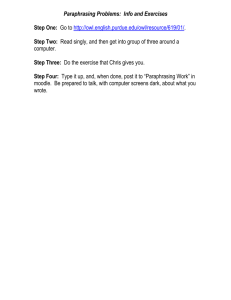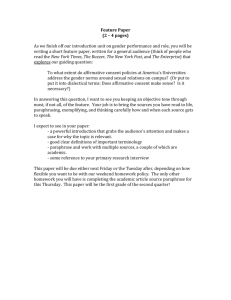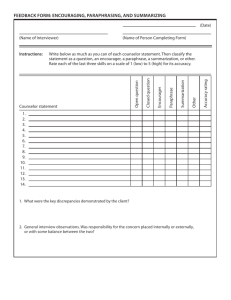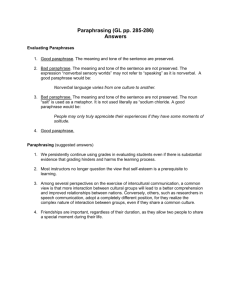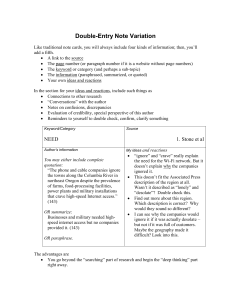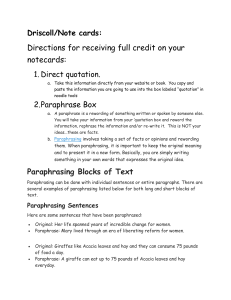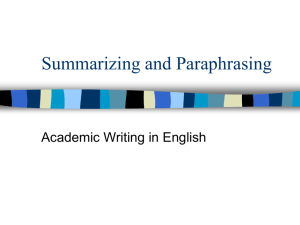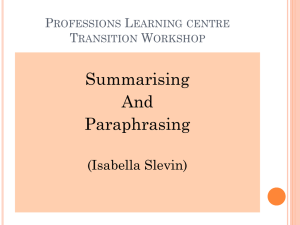Paraphrasing - The Evergreen State College
advertisement
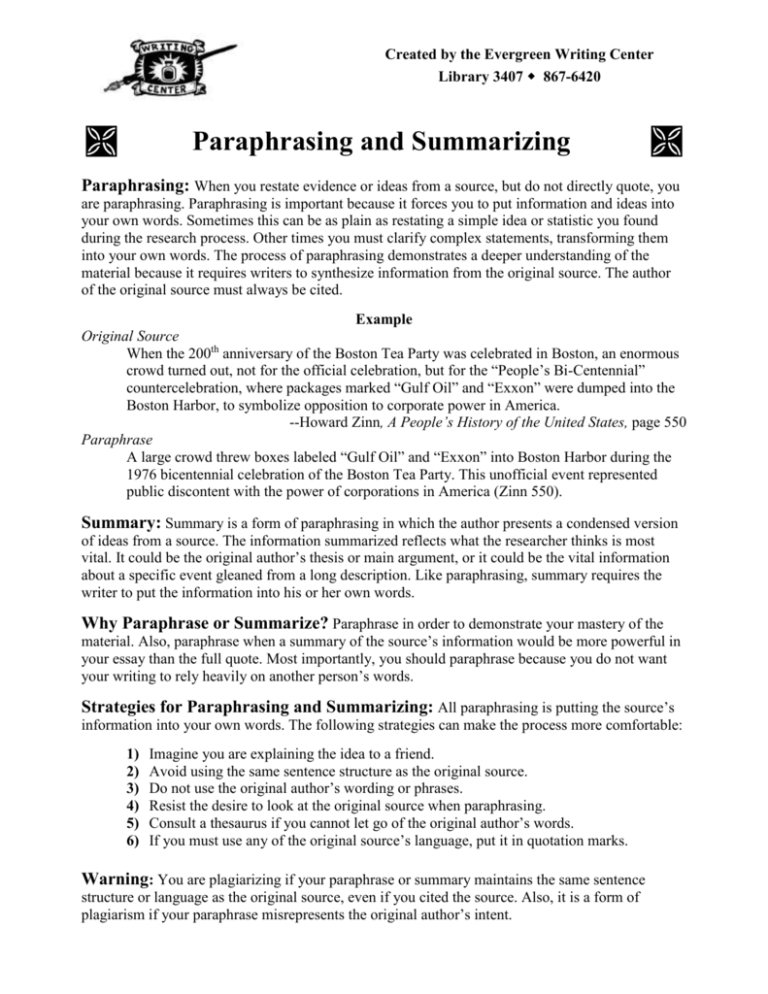
Created by the Evergreen Writing Center Library 3407 867-6420 Paraphrasing and Summarizing Paraphrasing: When you restate evidence or ideas from a source, but do not directly quote, you are paraphrasing. Paraphrasing is important because it forces you to put information and ideas into your own words. Sometimes this can be as plain as restating a simple idea or statistic you found during the research process. Other times you must clarify complex statements, transforming them into your own words. The process of paraphrasing demonstrates a deeper understanding of the material because it requires writers to synthesize information from the original source. The author of the original source must always be cited. Example Original Source When the 200th anniversary of the Boston Tea Party was celebrated in Boston, an enormous crowd turned out, not for the official celebration, but for the “People’s Bi-Centennial” countercelebration, where packages marked “Gulf Oil” and “Exxon” were dumped into the Boston Harbor, to symbolize opposition to corporate power in America. --Howard Zinn, A People’s History of the United States, page 550 Paraphrase A large crowd threw boxes labeled “Gulf Oil” and “Exxon” into Boston Harbor during the 1976 bicentennial celebration of the Boston Tea Party. This unofficial event represented public discontent with the power of corporations in America (Zinn 550). Summary: Summary is a form of paraphrasing in which the author presents a condensed version of ideas from a source. The information summarized reflects what the researcher thinks is most vital. It could be the original author’s thesis or main argument, or it could be the vital information about a specific event gleaned from a long description. Like paraphrasing, summary requires the writer to put the information into his or her own words. Why Paraphrase or Summarize? Paraphrase in order to demonstrate your mastery of the material. Also, paraphrase when a summary of the source’s information would be more powerful in your essay than the full quote. Most importantly, you should paraphrase because you do not want your writing to rely heavily on another person’s words. Strategies for Paraphrasing and Summarizing: All paraphrasing is putting the source’s information into your own words. The following strategies can make the process more comfortable: 1) 2) 3) 4) 5) 6) Imagine you are explaining the idea to a friend. Avoid using the same sentence structure as the original source. Do not use the original author’s wording or phrases. Resist the desire to look at the original source when paraphrasing. Consult a thesaurus if you cannot let go of the original author’s words. If you must use any of the original source’s language, put it in quotation marks. Warning: You are plagiarizing if your paraphrase or summary maintains the same sentence structure or language as the original source, even if you cited the source. Also, it is a form of plagiarism if your paraphrase misrepresents the original author’s intent.
